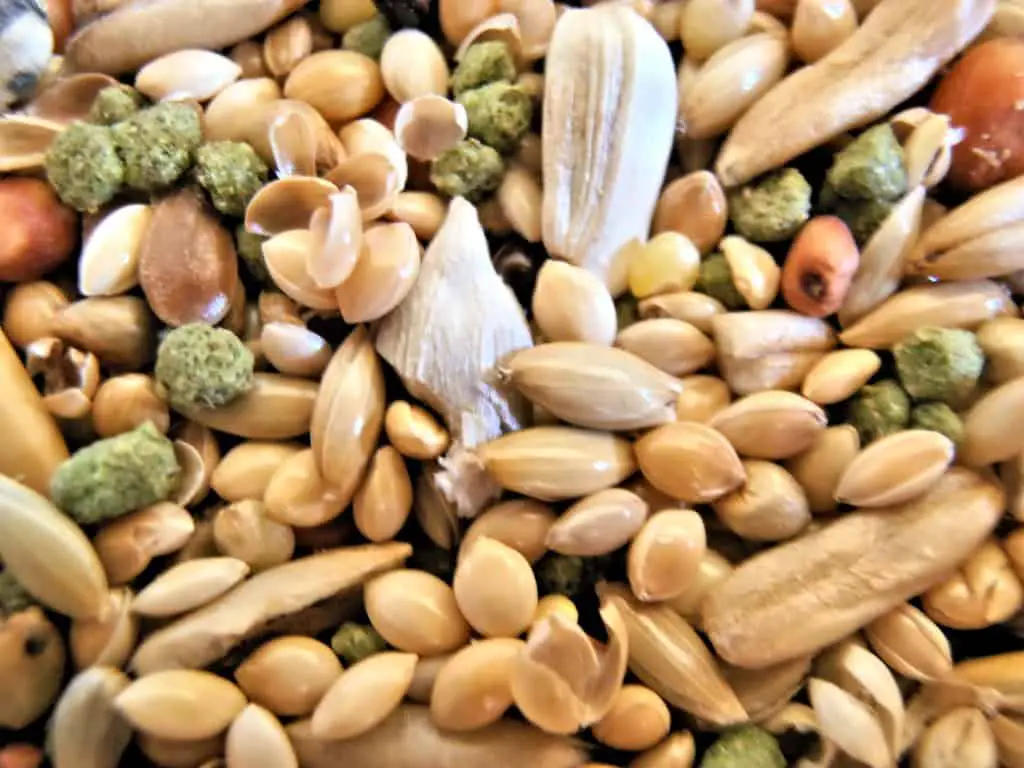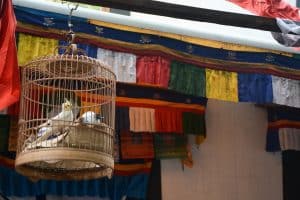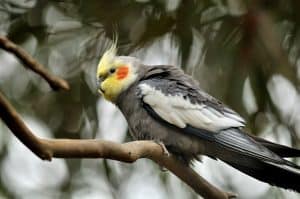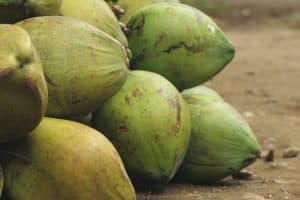Feeding your cockatiel isn’t just about keeping the food bowl full; it’s about meeting specific nutrition requirements to keep your feathered friend chirpy and healthy. Understanding the nutrition requirements of your cockatiel’s food can seem daunting, but it’s essential for their wellbeing. Cockatiels, like all birds, have unique dietary needs that must be met through a balanced diet.
From seeds and pellets to fruits and vegetables, what you choose impacts their overall health. Ensuring that your pet gets the right mix of nutrients helps prevent common health issues and promotes a long, joyful life. Let’s dive into what makes a cockatiel’s diet truly complete and how you can provide the best care through proper nutrition.
Essential Nutrients for Cockatiels
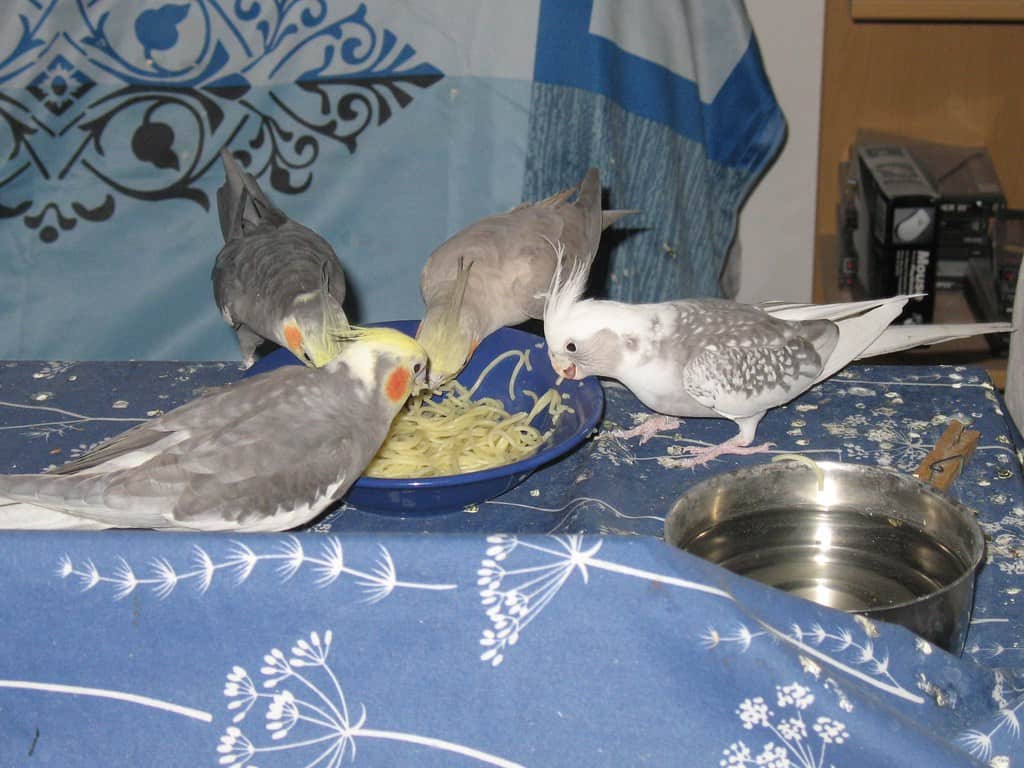
Feeding your cockatiel a well-balanced diet ensures they receive all the essential nutrients necessary for a healthy life. This section details the proteins, vitamins, and minerals crucial for cockatiels.
Protein Sources
Cockatiels need adequate protein for optimal health, particularly amino acids that are essential for feather growth and overall vitality. High-quality sources of protein in your bird’s diet include pelleted diets that are specifically formulated for birds. These pellets typically contain a mix of soy, corn, and wheat proteins that are easy for cockatiels to digest. If you prefer to supplement with natural foods, cooked eggs and small amounts of lean meats like chicken can be beneficial. These should be offered in moderation to prevent excessive weight gain.
Essential Vitamins and Minerals
Vitamins and minerals play pivotal roles in maintaining your bird’s health. A deficiency can lead to serious health problems, such as egg binding or weak bones. Ensure your cockatiel’s diet includes:
- Vitamin A: Crucial for maintaining good vision, skin health, and proper functioning of the immune system. Carrots, sweet potatoes, and leafy greens like spinach are excellent sources.
- Calcium: Important for strong bones and successful egg-laying processes. Incorporate calcium-rich foods like broccoli and calcium-supplemented pellets.
- Vitamin D: Helps in the absorption of calcium and supports bone health. Exposure to sunlight or UVB light is vital for natural Vitamin D synthesis in cockatiels. Foods fortified with Vitamin D can also help.
Monitor the quantities you feed your cockatiel to avoid providing an excess, which can be as harmful as a deficiency. Regular consultations with an avian vet can help you adjust the diet as necessary to maintain optimal health for your feathered friend.
Cockatiel Food Types
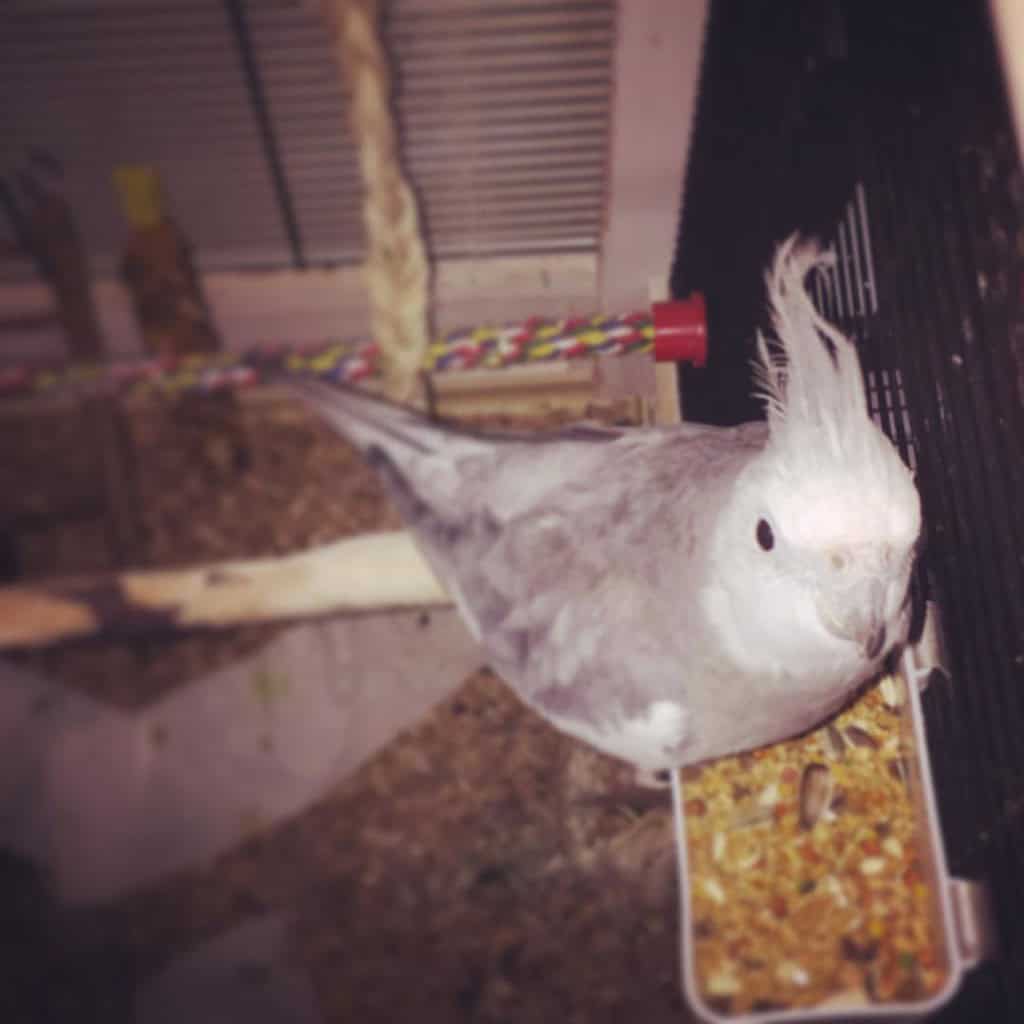
In providing optimal nutrition for your cockatiel, understanding the various types of food available is crucial. This section dives into the differences and benefits of seeds, pellets, fresh vegetables, fruits, and suitable treats and supplements to maintain your bird’s health effectively.
Seeds vs. Pellets: Which Is Better?
Seeds have traditionally formed a part of a cockatiel’s diet but should not constitute the entirety of their meals due to potential nutritional imbalances. A seed diet, especially one heavy in sunflower seeds, can lead to an excess intake of fat and a deficiency in essential vitamins and minerals. On the other hand, pellets offer a more balanced diet, providing your cockatiel with a carefully measured blend of nutrients needed for optimal health. If converting from seeds to pellets, it’s advisable to do so gradually, as cockatiels might resist changes in their food dish initially.
Importance of Fresh Vegetables and Fruits
Integrating fresh vegetables and fruits into your cockatiel’s diet is essential for providing the necessary vitamins and minerals that support their overall health. Encouraging your cockatiel to eat fruits, alongside vegetables, ensures they receive important nutrients that aid in digestive health and feather condition. Leafy greens like spinach, kale, and vegetables such as carrots and bell peppers are excellent choices.
Fruits should be given in moderation due to their high sugar content; suitable options include apple slices (without seeds) and berries. Remember to wash fresh produce thoroughly to remove pesticides and cut them into manageable pieces to prevent choking. Regularly offering a variety of fruits and vegetables will contribute to a well-rounded diet for your feathered friend. Safe Treats and Supplements
Offering treats can be a delightful way to bond with your cockatiel, but these should be given sparingly to avoid dietary imbalances. Safe options include small amounts of cooked eggs or millet spray, which provide protein without excessive fat. Supplements may be necessary if your veterinarian identifies any specific nutritional gaps; however, these must be administered according to professional guidance. Calcium supplements are commonly recommended, especially for females prone to egg binding. Always ensure freshness and suitability of any treats or supplements to avoid health problems.
- NUTRITIONALLY COMPLETE COCKATIEL FOOD: formulated by top avian veterinarians and avian nutritionists
- NON-GMO AND HUMAN-GRADE INGREDIENTS: no artificial colors, flavors, or preservatives
- RICH IN ANTIOXIDANTS & OMEGA 3&6 BALANCED: help support healthy skin, feathers, and immune system
- MADE IN THE USA: our food is mixed, formed, and packaged in small batches and under one roof on the Lafeber family farm in Cornell, IL
- 100% SATISFACTION GUARANTEE: we are a small family company that works hard to produce gourmet pet bird food, which is why we're confident in offering a 100% satisfaction guarantee
Common Dietary Mistakes
Understanding the proper nutrition for your cockatiel is crucial, but equally important is recognizing what not to do. Here, we’ll discuss common feeding errors that can compromise the health of your cockatiel.
Foods to Avoid
Feeding your cockatiel the wrong foods can lead to serious health issues. Avoid giving your bird avocado, chocolate, and caffeine, as these contain substances that can be toxic to birds. Similarly, remove apple seeds and other pits from fruits, as they contain small amounts of cyanide. Additionally, foods with high salt, fat, or sugar content are not suited for a cockatiel’s diet. If you’re unsure whether a food item is safe, consulting an avian vet can prevent potential risks.
Overfeeding and Nutritional Imbalances
Overfeeding your cockatiel can lead to obesity and associated health problems, such as heart disease and liver issues. Cockatiels eat only a small amount of food daily, but quality matters more than quantity. A common error is providing a diet heavy in sunflower seeds, which are high in fat and can lead to nutritional imbalances. Strive for a well-balibrated diet, integrating appropriate proportions of seeds, pellets, and fresh vegetables and fruits. Regularly monitoring your cockatiel’s weight and adjusting its food intake ensures it receives adequate nutrition without excess calories.
Feeding Routine and Tips
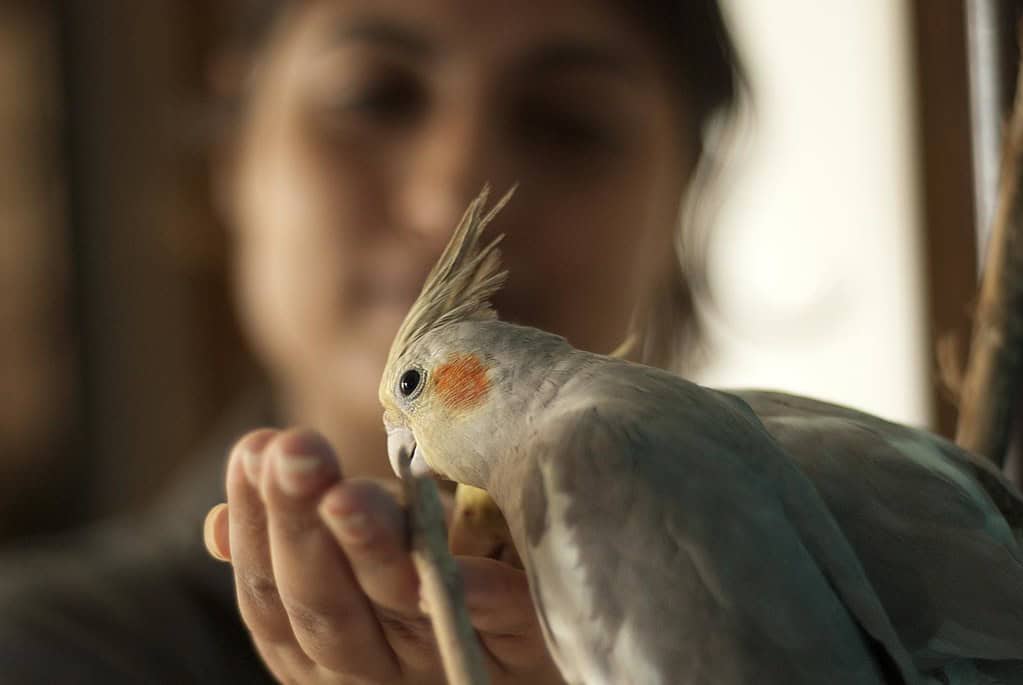
A consistent feeding routine not only simplifies your life but also promotes your cockatiel’s health by meeting its nutritional needs reliably. This section offers practical tips on how to establish a sound feeding regime and manage portion sizes and frequency, ensuring your bird receives a balanced diet.
Establishing a Feeding Schedule
Establishing a feeding schedule helps regulate your cockatiel’s digestion and energy levels while mimicking their natural, or “wild diet,” which consists of a varied intake of seeds, fruits, and vegetables. Aim to feed your bird twice a day, once in the morning and once in the evening, to reflect the feeding patterns they would experience in the wild.
Consistency is key, so try to maintain these feeding times within a 30-minute window each day. Additionally, remove any uneaten fresh food after a couple of hours to prevent spoilage and maintain hygiene in the feeding area. This routine not only keeps your bird healthy but also reduces stress by providing predictability.
Portion Sizes and Frequency
Finding the right portion sizes for your cockatiel is crucial for meeting their nutritional needs without overfeeding. Typically, a cockatiel should receive about 1.5 to 2 tablespoons of a pelleted diet each day, complemented with fresh fruits and vegetables. Adjust the portions according to your bird’s size, age, and activity level; for example, younger or more active cockatiels might need slightly more food than older or less active ones. Additionally, provide fresh water daily and clean the food dish regularly to avoid bacterial growth. Regularly monitoring your cockatiel’s weight and consulting with an avian vet can help fine-tune their diet, ensuring they receive the optimal balance of nutrients for their health.
The Role of Hydration in Cockatiel Nutrition
While solid food forms the bulk of a cockatiel’s diet, hydration is an equally vital component that is often overlooked. Proper hydration supports digestion, nutrient absorption, and overall physiological functions, ensuring your cockatiel remains healthy and vibrant.
Importance of Fresh Water
Cockatiels should have access to fresh, clean water at all times. Water helps in the digestion of food, the regulation of body temperature, and the removal of waste products from the body. Dehydration can quickly become life-threatening for birds, leading to symptoms like lethargy, dry skin, and difficulty breathing. To prevent dehydration, ensure that your cockatiel’s water dish is cleaned daily and refilled with fresh water. Avoid using distilled water, as it lacks essential minerals; instead, opt for filtered or tap water, ensuring it is free from contaminants.
Hydrating Foods
In addition to drinking water, cockatiels can also obtain hydration from the food they consume. Fresh fruits and vegetables not only provide essential vitamins and minerals but also contribute to their water intake. Foods like cucumbers, melons, and leafy greens have high water content and can help keep your bird hydrated. Be mindful, however, to wash all fresh produce thoroughly to remove any pesticides or harmful residues.
Signs of Proper Hydration
Observing your cockatiel’s behavior and physical condition can help you ensure they are adequately hydrated. A well-hydrated bird will have bright, clear eyes, smooth and vibrant feathers, and be active and alert. Their droppings should be well-formed with a clear, white urine portion. Any deviation from these signs, such as sunken eyes, dry or fluffed-up feathers, or changes in droppings, may indicate dehydration or other health issues and should be addressed promptly.
Providing Hydration during Illness
When a cockatiel is ill, maintaining hydration becomes even more critical. Birds often reduce their food and water intake when sick, which can exacerbate their condition. In such cases, you might need to encourage drinking by offering water with added electrolytes or using a dropper to administer fluids directly. Consult your avian vet for specific guidance if your bird shows signs of illness or dehydration.
Encouraging Drinking Behavior
Some cockatiels might be reluctant to drink sufficient water, especially if they are stressed or unfamiliar with their environment. To encourage drinking, place multiple water dishes around their living space and ensure they are easily accessible. Adding a few drops of fruit juice to the water can make it more appealing, but avoid citrus juices, which can be too acidic. Additionally, observing and interacting with your bird during feeding times can create a calm and reassuring environment, promoting healthy eating and drinking habits.
Final Thoughts: Nutrition Requirements of Your Cockatiel’s Food?
Ensuring your cockatiel receives a balanced and nutritious diet is key to their overall health and longevity. By incorporating a variety of seeds, pellets, fruits, and vegetables, you’re providing the essential nutrients needed for a vibrant life. Remember to monitor their intake to avoid nutritional imbalances and consult with an avian vet to tailor their diet perfectly. With the right care and attention to their feeding habits, your feathered friend will thrive. Keep up with regular weight checks and adjust their food portions as needed to maintain their ideal health.
Cockatiel Cheese Guide: 7 Safe Types for a Happy, Healthy Feathered Friend
